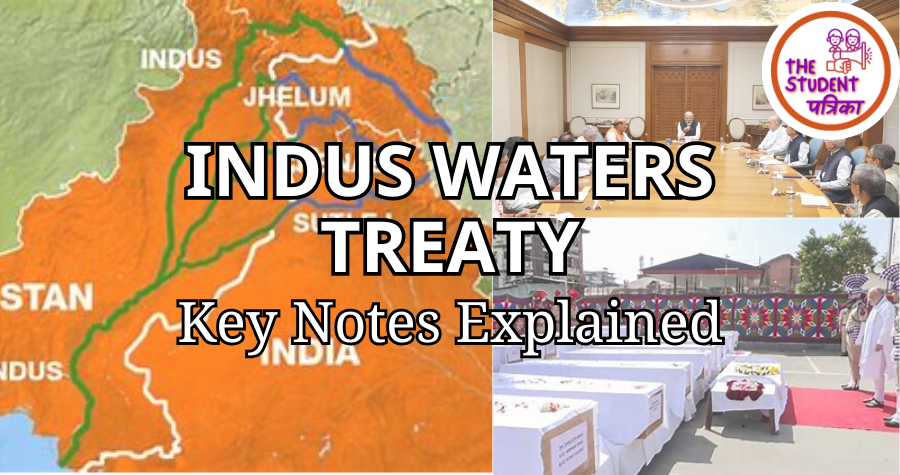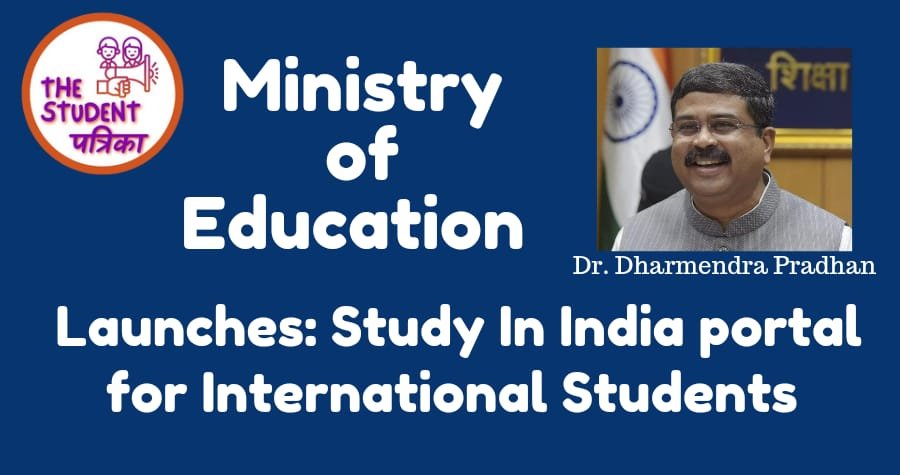
🧭 Indus Waters Treaty (IWT): An Overview
-
Signed: September 19, 1960
-
Parties: India and Pakistan
-
Brokered by: World Bank
-
Purpose: To allocate the use of the Indus River system's waters between the two countries.
🌊 Key Provisions
-
Western Rivers: Indus, Jhelum, and Chenab allocated to Pakistan.
-
Eastern Rivers: Ravi, Beas, and Sutlej allocated to India.
-
India's Rights:
-
Unrestricted use of eastern rivers.
-
Limited use of western rivers for domestic, non-consumptive, and agricultural purposes, as well as for hydroelectric power generation under specified conditions.
-
📘 Significance
-
Considered one of the most successful water-sharing agreements globally.
-
Has withstood multiple conflicts between India and Pakistan, including wars in 1965, 1971, and 1999.
📰 Recent Developments: Suspension of the IWT
🗓️ Timeline of Events
-
April 22, 2025: A terrorist attack in Pahalgam, Jammu & Kashmir, results in the deaths of 26 civilians, including 25 Indian tourists and one Nepalese national.
-
April 23, 2025: India's Cabinet Committee on Security (CCS) convenes and decides to suspend the IWT, citing Pakistan's alleged support for cross-border terrorism.
-
April 24, 2025: India formally communicates the suspension to Pakistan, stating it will remain in effect until Pakistan ceases support for terrorism.
🧾 India's Rationale
-
India asserts that Pakistan's continued support for cross-border terrorism undermines the spirit of the IWT.
-
The suspension is portrayed as a strategic move to pressure Pakistan into taking concrete actions against terrorist groups operating from its territory.
⚠️ Pakistan's Response
-
Pakistan condemns the suspension, labeling it an "act of war."
-
Warns of severe repercussions if India unilaterally alters water flows.
-
Suspends the 1972 Simla Agreement and other bilateral engagements in retaliation.
🌐 Implications of the Suspension
🔄 Bilateral Relations
-
Marks a significant deterioration in India-Pakistan relations.
-
Potential to escalate into broader conflicts if not managed diplomatically.
💧 Water Security
-
Pakistan's agriculture heavily relies on the Indus River system; any disruption could have dire consequences for its food and water security.
-
India's suspension could be leveraged as a strategic tool in diplomatic negotiations.
🌍 International Law and Mediation
-
The World Bank, as a broker of the treaty, may be called upon to mediate.
-
Raises questions about the sanctity of international agreements amidst geopolitical tensions.
📝 UPSC Examination Relevance
📌 Prelims
-
Understanding the historical context and provisions of the IWT.
-
Awareness of recent geopolitical developments affecting international treaties.
📌 Mains
-
GS Paper II: India's neighborhood relations; the role of international institutions in bilateral treaties.
-
GS Paper III: Internal security challenges; implications of cross-border terrorism on international agreements.
📚 Conclusion
The suspension of the Indus Waters Treaty by India in response to the Pahalgam terrorist attack signifies a pivotal moment in South Asian geopolitics. It underscores the intricate link between security concerns and international agreements. For UPSC aspirants, this development offers a rich case study on the interplay between diplomacy, security, and international law.
Stay updated with StudentPatrika.com for more insightful notes and analyses tailored for UPSC preparation.










